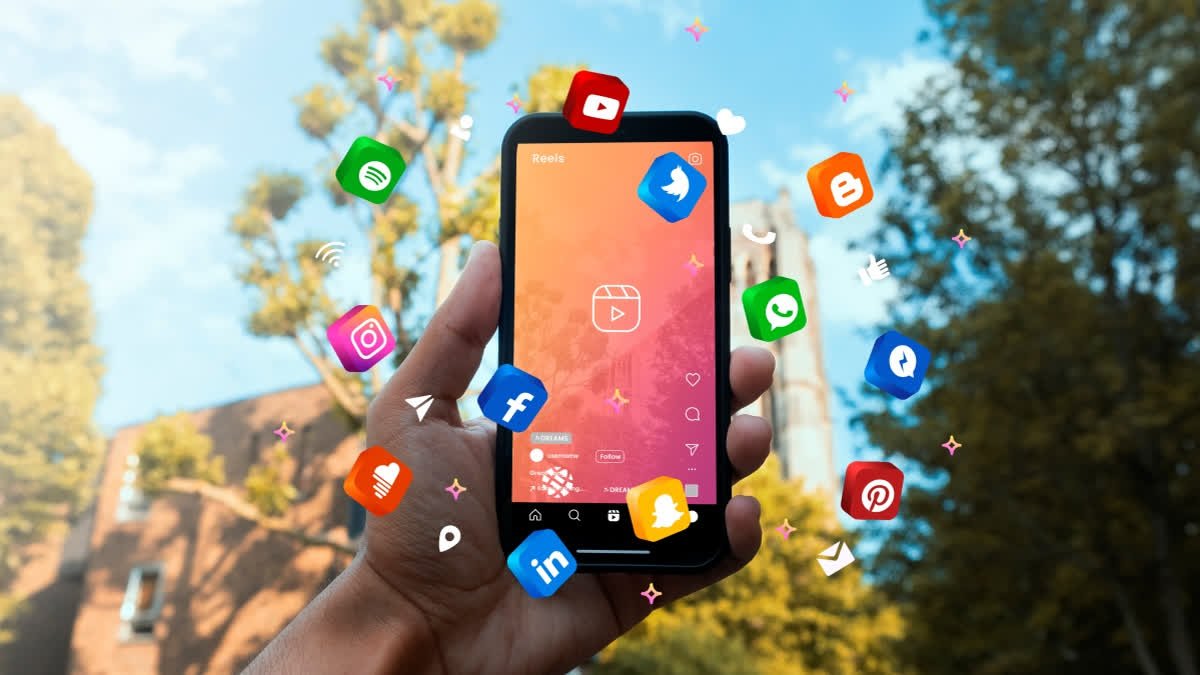Let us agree, that social media is everywhere–from the first thing in the morning scroll to late-night doomscrolling. While these platforms are great source of information, entertainment and keep us connected with those you don't call everyday, social media can take a toll on your mental health. The curated lifestyle, continuous notifications and news updates can lead to social media anxiety. "It's a growing concern with millions of users. They feel the fear of missing out and even anxiety seeing that other's life is better than them, forgetting that that's only on the social media, which is their deceptional reality," says Mumbai-based Counselling Psychologist Ashka Mehta.
If you are feeling overwhelmed, anxious and emotionally drained after spending time online, you are not alone. Research shows that social media use is linked to increased anxiety, depression, and reduced self-esteem. However, you can control the use and offer yourself a much-needed digital detox by stepping away from your phone and computer screen. Here are some handy tips from the counsellor to help you manage social media anxiety and get that much needed detox.
Social media can trigger anxiety (Freepik) How to recognise the signs of social media anxiety
Many times, anxiety and irritation caused by social media can go unchecked. You may not point out the exact reason, however when you feel anxious or irritable after checking your feed, know that you need to leave your phone.
- Another sign is when you start constantly comparing yourself with others and feel low.
- If you keep on checking your phone after posting something on your account for likes, comments or new posts, you have developed a compulsive checking habit.
- Feeling difficulty in sleeping due to late-night scrolling is also a sign of being habitual on social media.
- Fear of missing out is another sign when you keep scrolling and posting about your life on social media to give updates about yourself or seeing others' updates.
- If you experience any of these signs, then it is time to take a break from your relationship with social media. And here's how you can do that.
- Set boundaries with your devices
- Limit screen time and use apps to track and reduce the time you are spending on social media
- Keep your phones out of bedroom or dining area to make it less accessible.
- Designate specific time in a day for checking social media and try to stick to that
- Use 'Do Not Disturb' feature during work or personal time.
Curate your feed mindfully
Social media can also take a toll on your mental health (Freepik) Your social media feed should inspire and uplift your mood and not stress you out.
- Unfollow account that trigger anxiety or stress you out. Most of us have follwoed certain accounts that trigger our emotions or irritate us with their views and posts. It's better to block them. Any account that triggers negative feeling or anxiety should not be on your follow list.
- Follow positive accounts which make you feel better. Many choose to follow animals or cartoons which can bring their childhood memories back. These accounts are fun and uplift your mood. You can also follow accounts that advocate mental health, body positivity or educate you about things of your interest.
- Mute notifications as they can be distraction. You may be working or busy with something and your phone keeps on buzzing with notification. This can trigger urgency to check, leading to anxiousness. It's advisable to keep the notifications on mute so you can check when you have scheduled your time for social media.
Practice a digital detox
It's not only your body that needs detox but your mind as well. It doesn't have to be drastic like a time off in the mountains. It can be manageable break to reset and reconnect with real life.
- To start with try a 24-hour detox once a week.
- Replace screen time with offline activities like a long walk, reading a book, spending time with friends and family.
- Use your detox time to reconnect with your hobbies that you would enjoy earlier. It can be anything, painting, cooking, or writing.
Prioritise mental health and mindfulness
Prioritise mental health and mindfulness (Freepik) Social media can keep you hooked for its designed to do that. However, you have the power to control it for your mental peace.
- Practice mindfulness:Meditation and breathing exercises can reduce anxiety and help you stay calm and reconnect with yourself.
- Journaling:Write down how you feel and what your thoughts are. This process of writing it down can make you feel better.
- Seek support: If you feel overwhelmed and can't handle your emotions, reach out to your friends and family members to talk about it. A therapist or a counselor can also help you manage your emotion in a systematic manner.
Read More:
- Dealing With Heart Break? 5 Ways To Overcome A Break-Up; Expert's Advise
- Tips For School Students To Maintain Your Cool Before The Board Exams
- Why Heroes Fighting Bad Guys May Send The Wrong Message To Kids: Long-Term Impacts Of Watching Violence On Screen
